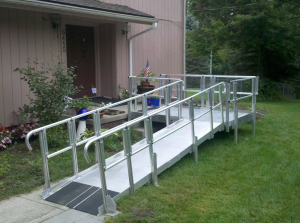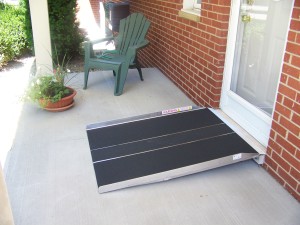There Are Three Basic Types.
Wheel chair mobility ramps come in three basic types.
Each type is unique to your needs and conditions and is custom installed to strict guidelines and specs.
1 – Modular Ramps
These ramps are a good long term solution to provide safe access to an entry door at a home with a door threshold that is a foot or more above ground level. The aluminum “modules” can be configured into many layouts of gently sloping ramps and level platforms so they are most often used to access taller doorways. They also provide the assurance of smooth, graspable hand rails. These provide a convenient grip for a care giver who might need to stop while pushing an occupied wheel chair half way up a ramp. And for patients who may switch between using a walker or a wheel chair, some can use the hand rails instead of their walker for independence and good exercise during rehabilitation. Our aluminum ramps are the strongest in the industry, supported by many legs that are securely bolted to the modules, without the need for underground footings as normally used for wood ramps. That means you can also disassemble them and reconfigure them, or move them to another location if needed.
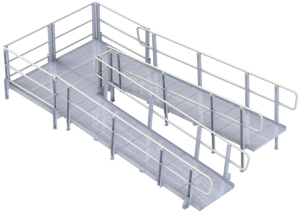 |
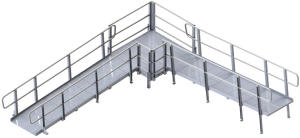 |
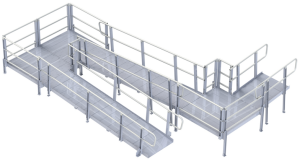 |
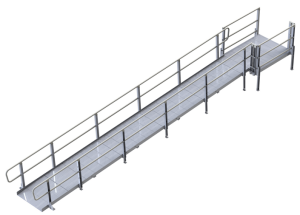 |
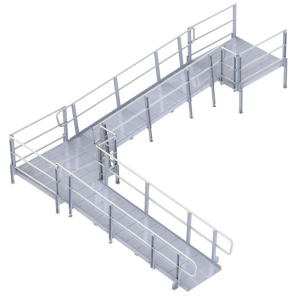 Click image to see larger view. Click image to see larger view. |
 |
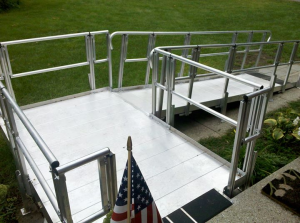 |
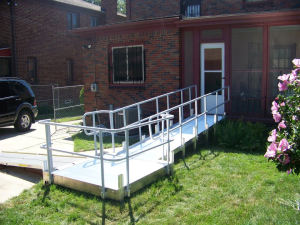 |
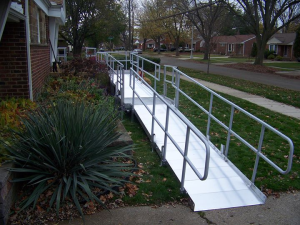 |
2 – Portable, either folding or rigid for occasional use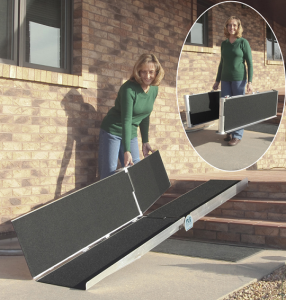
Although these ramps do not come with hand rails, they are convenient for getting over short steps or curbs. The shorter, single panel “solid” ramps are rigid, welded panels that can be left in place on a porch or deck, typically to roll in or out of a door that is 4-6” above the surface. They are sturdy, and have very little flex.
The folding ramps (aka “suitcase ramps”) are great for occasional use when transporting a wheel chair user to an event or a friend’s home where you might find a curb or other barrier when you arrive. Because all folding ramps flex to some degree when under load, we do not recommend these for long-term placement at a single location. Also, for the confidence of the chair user as well as the primary care giver, we suggest that you have an extra assistant to walk along the side of the wheel chair and lend a hand if needed. (remember, there are no hand rails).
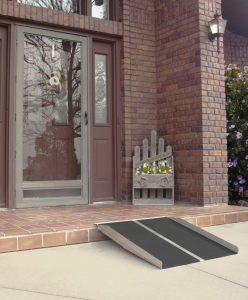 |
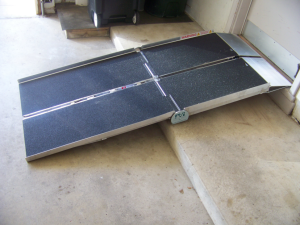 |
3 – “Thresholds” , anything less than about 3” down to ¾”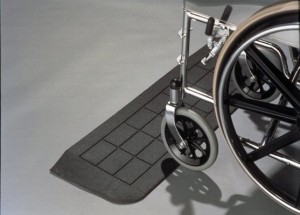
These little ramps are often made of stiff rubber, or aluminum or wood. As the name  suggests, they are most often used at door thresholds to smooth out the transition over a thick weather strip, or over a marble sill at a bathroom door. Anywhere that a wheel chair user may have trouble getting over a bump ranging from 3/4” up to about 3 ½” there is a threshold ramp that will work, even in tight spaces. Threshold ramps also help minimize tripping hazards for people using canes
suggests, they are most often used at door thresholds to smooth out the transition over a thick weather strip, or over a marble sill at a bathroom door. Anywhere that a wheel chair user may have trouble getting over a bump ranging from 3/4” up to about 3 ½” there is a threshold ramp that will work, even in tight spaces. Threshold ramps also help minimize tripping hazards for people using canes
and walkers.
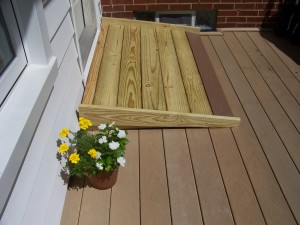 |
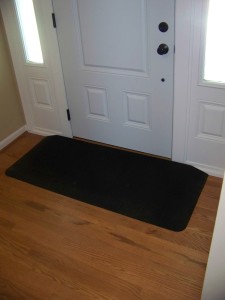 |
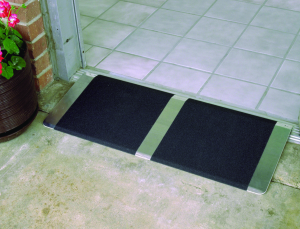 |
Photo Gallery
Detroit Ramp can install many different varieties of wheel chair ramps to fit your needs.
Here is just a small sampling of some of our custom wheel chair ramp installations.
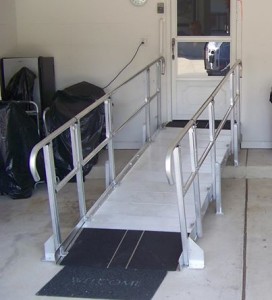 |
 Apartment Before Ramp Install Apartment Before Ramp Install |
 Apartment Ramp After Install Apartment Ramp After Install |
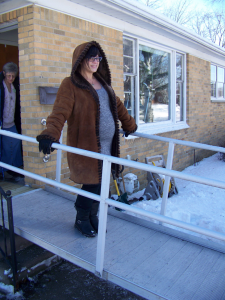 |
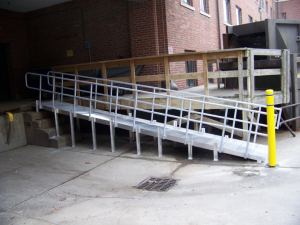 |
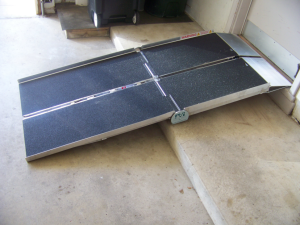 |
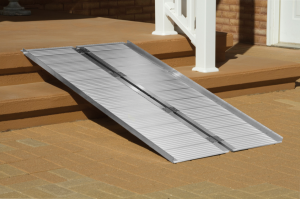 |
 |
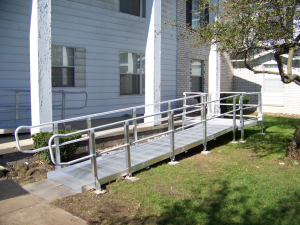 |
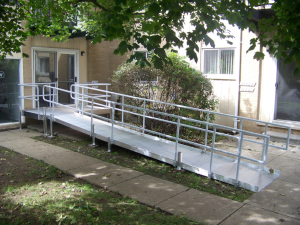 |
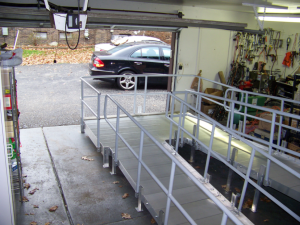 |
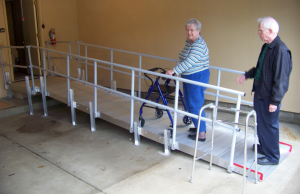 |
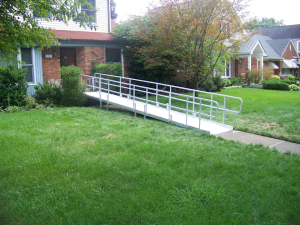 |
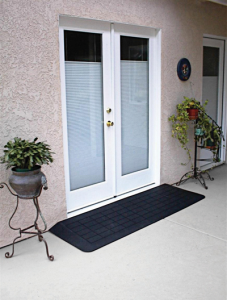 |
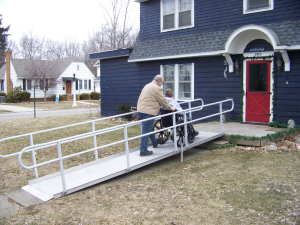 |
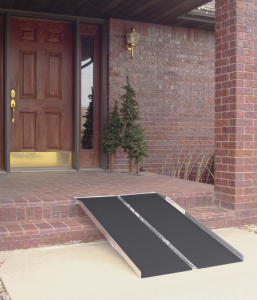 |
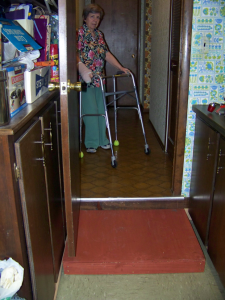 |
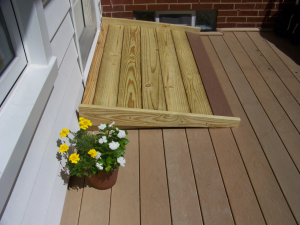 |
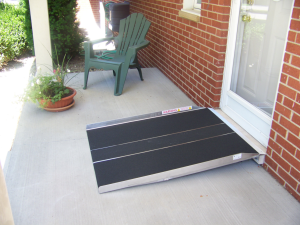 |
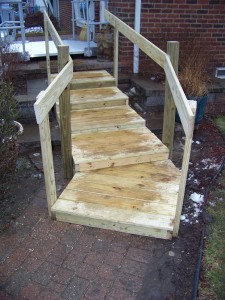 |
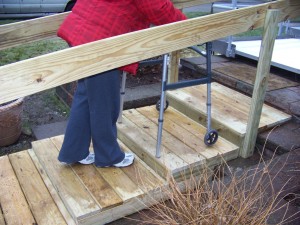 |
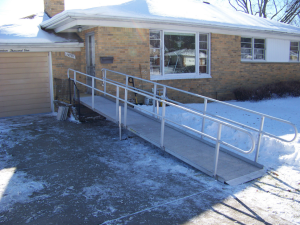 |
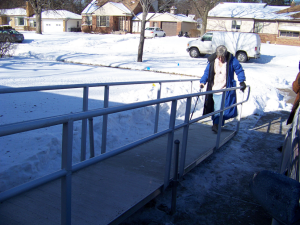 |
 |
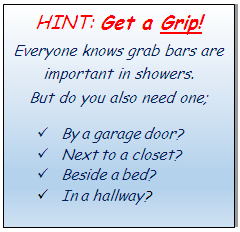
Want to see a YouTube video including other ramp products we offer? Click on the arrow below.
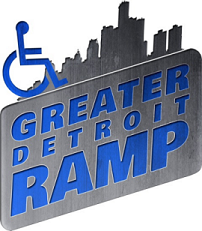 (248) 739-8500
(248) 739-8500
